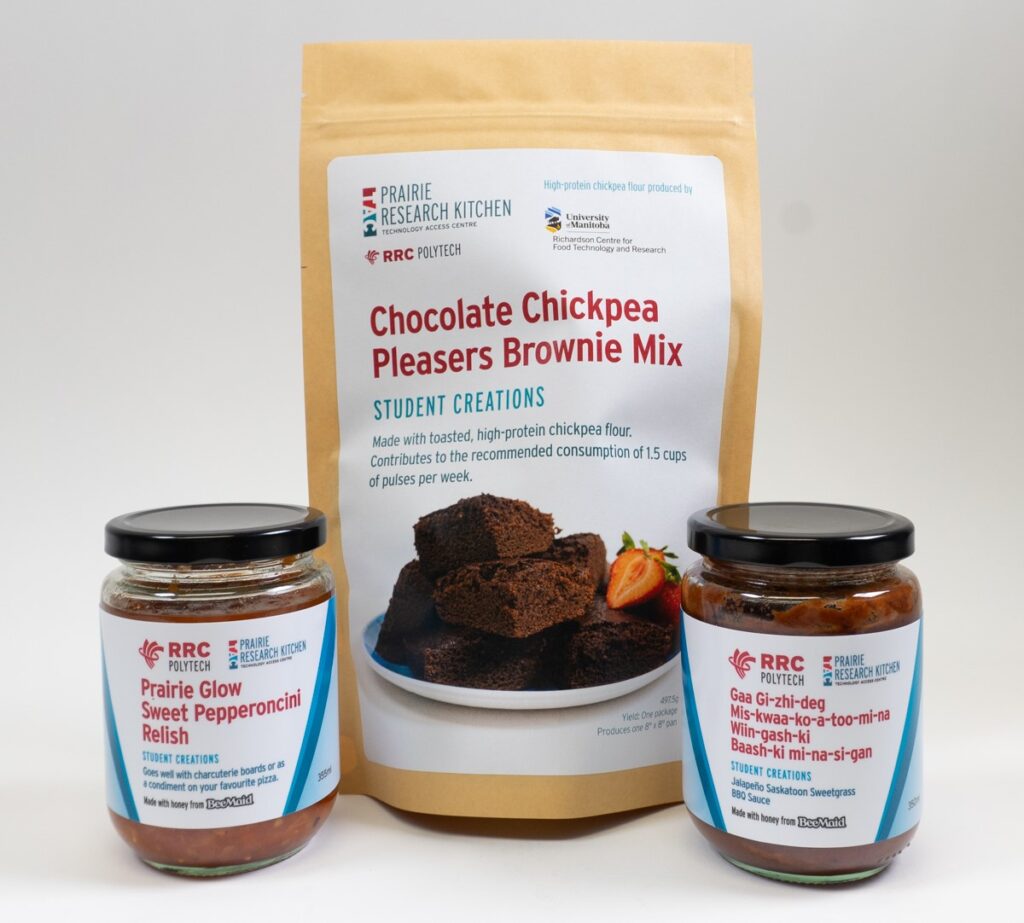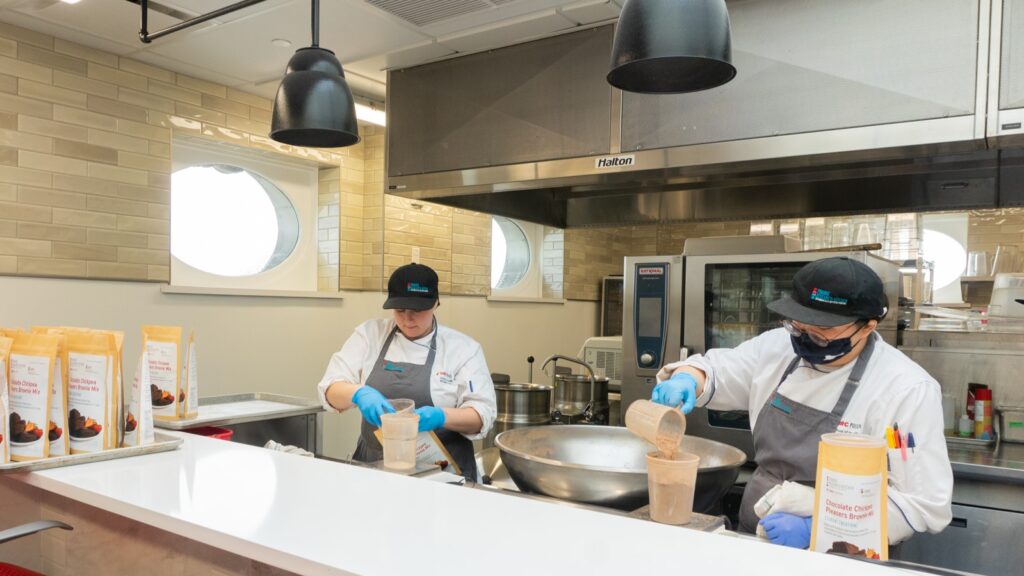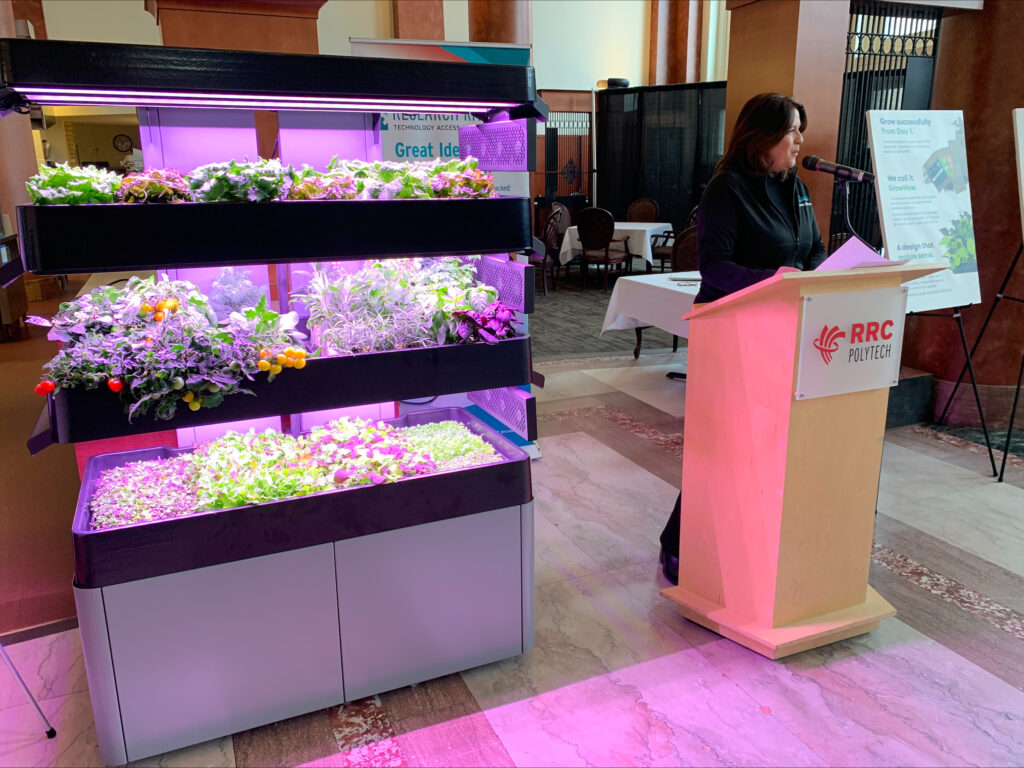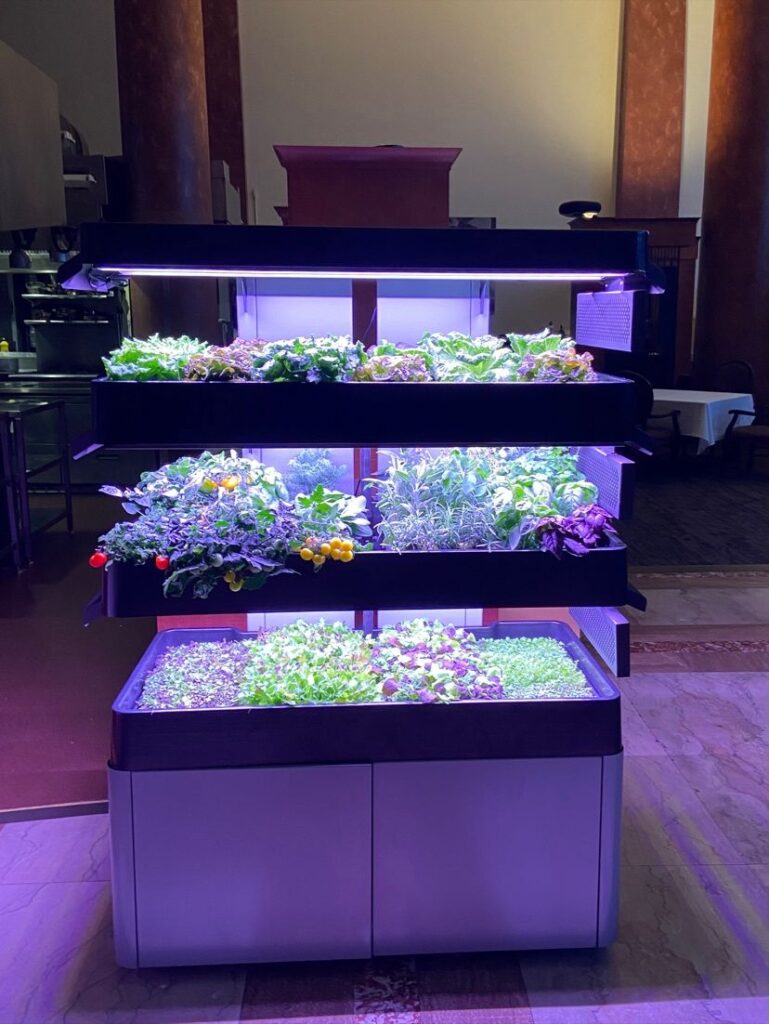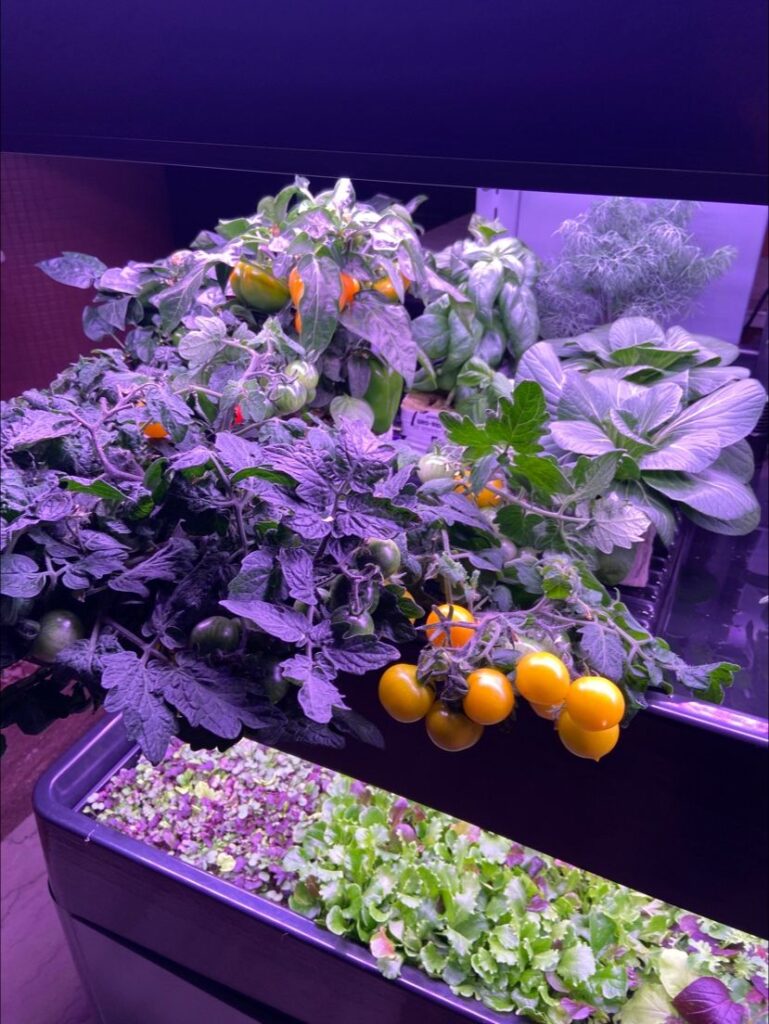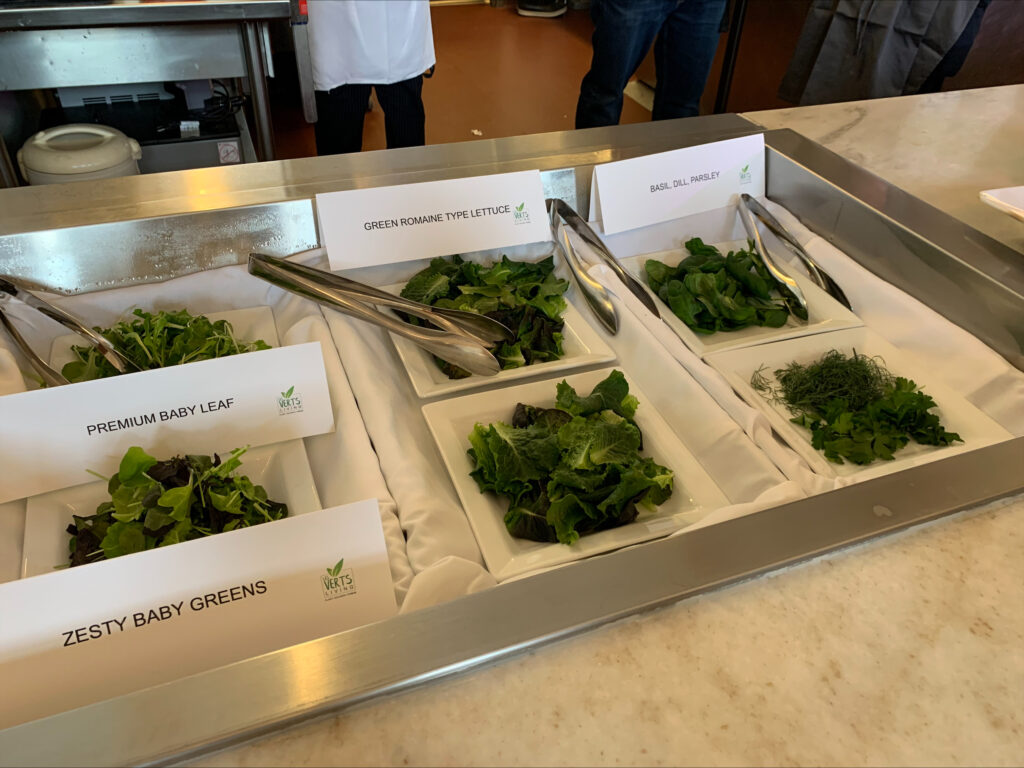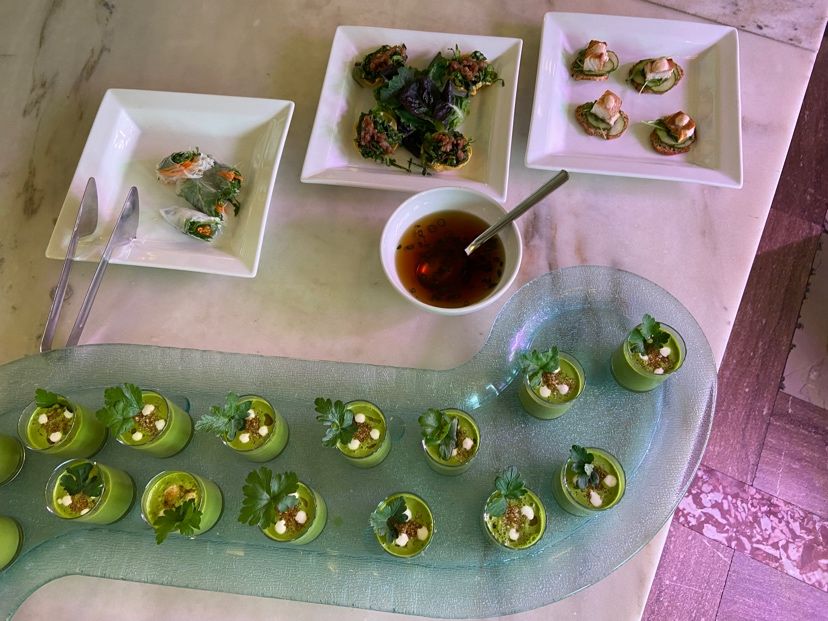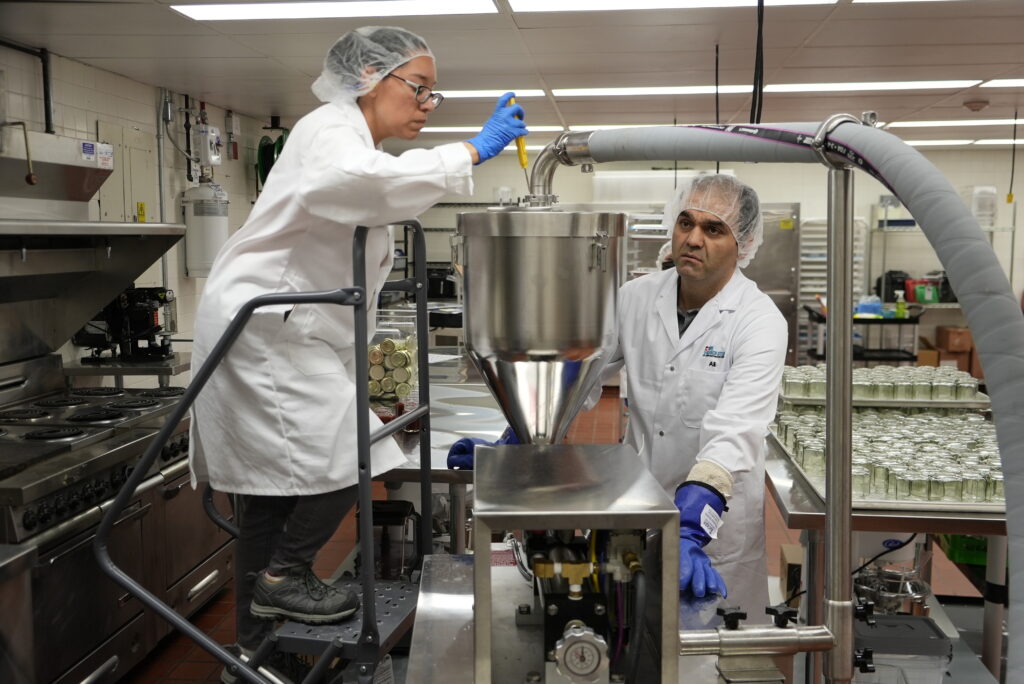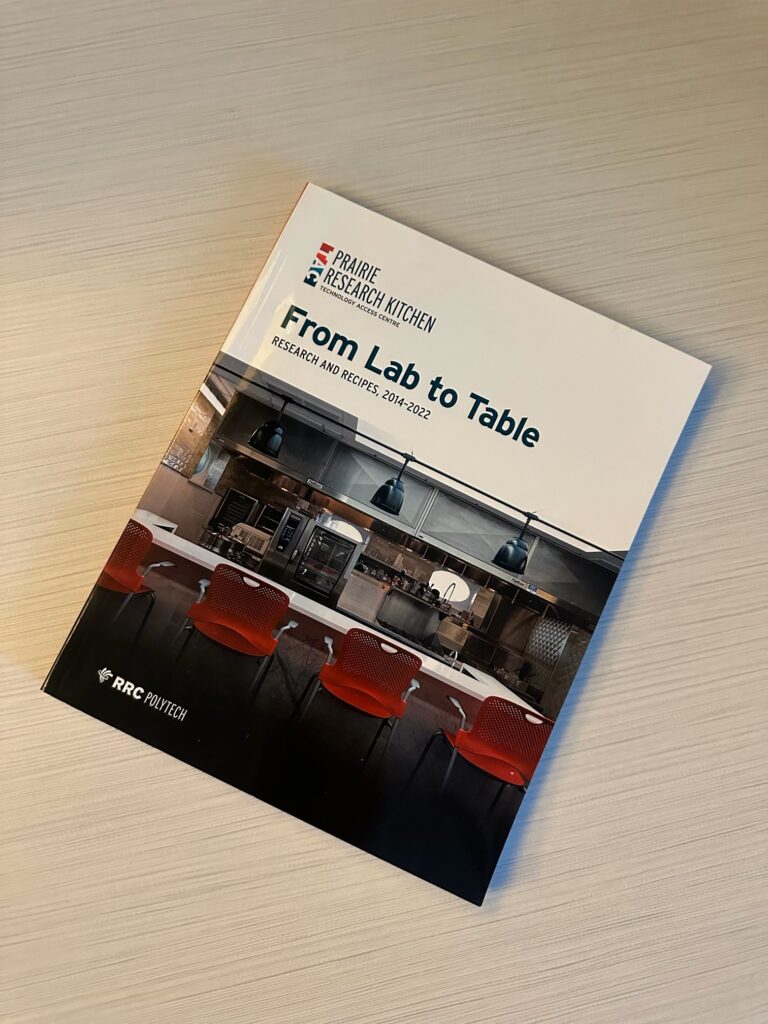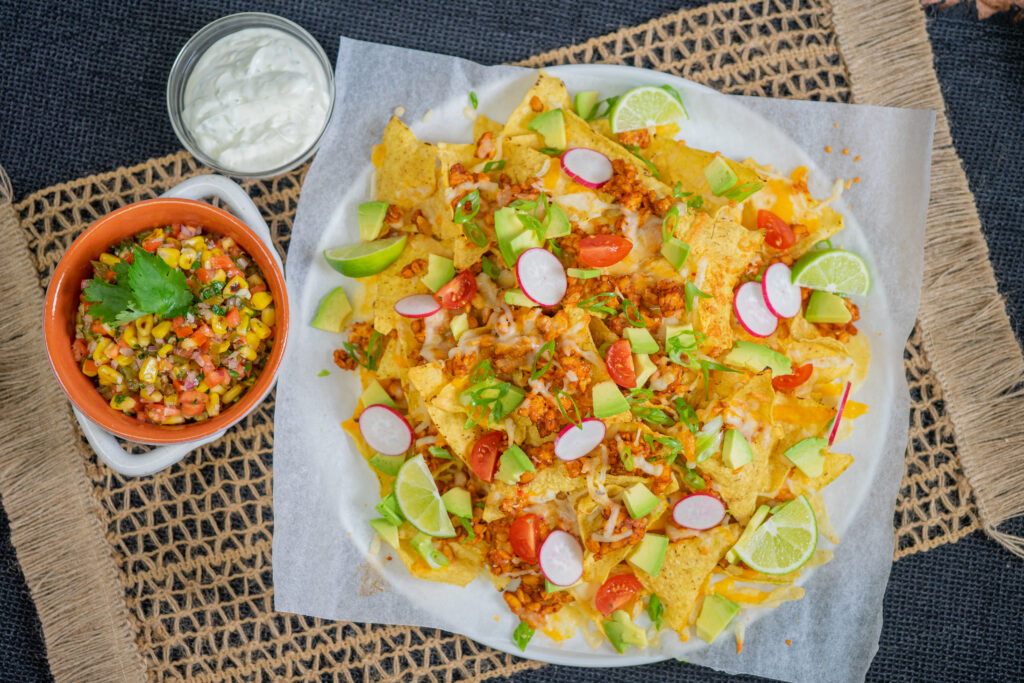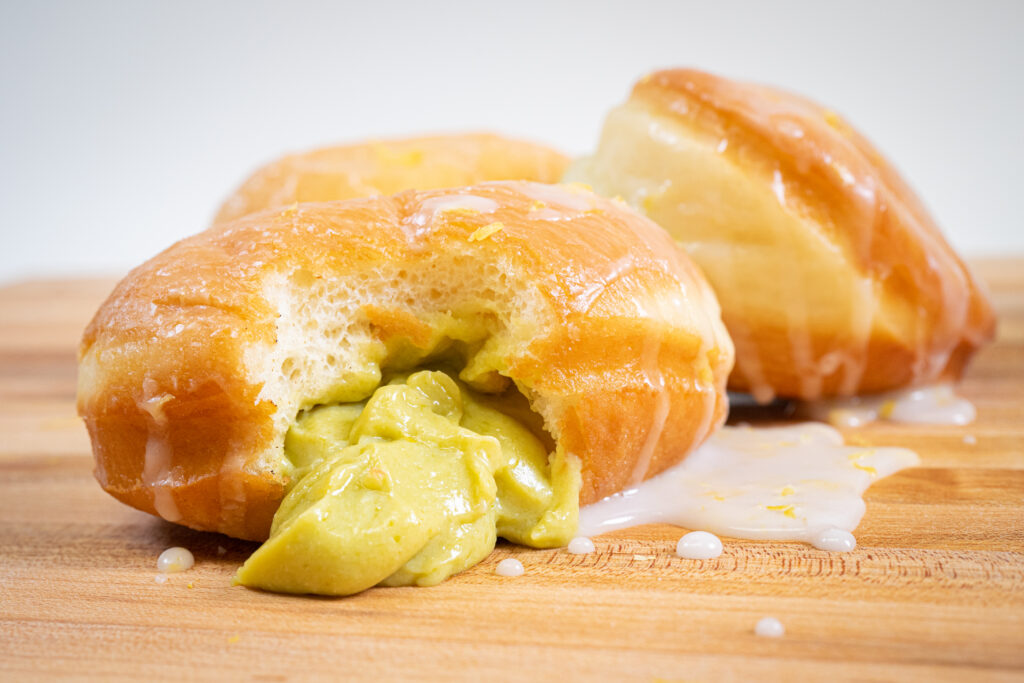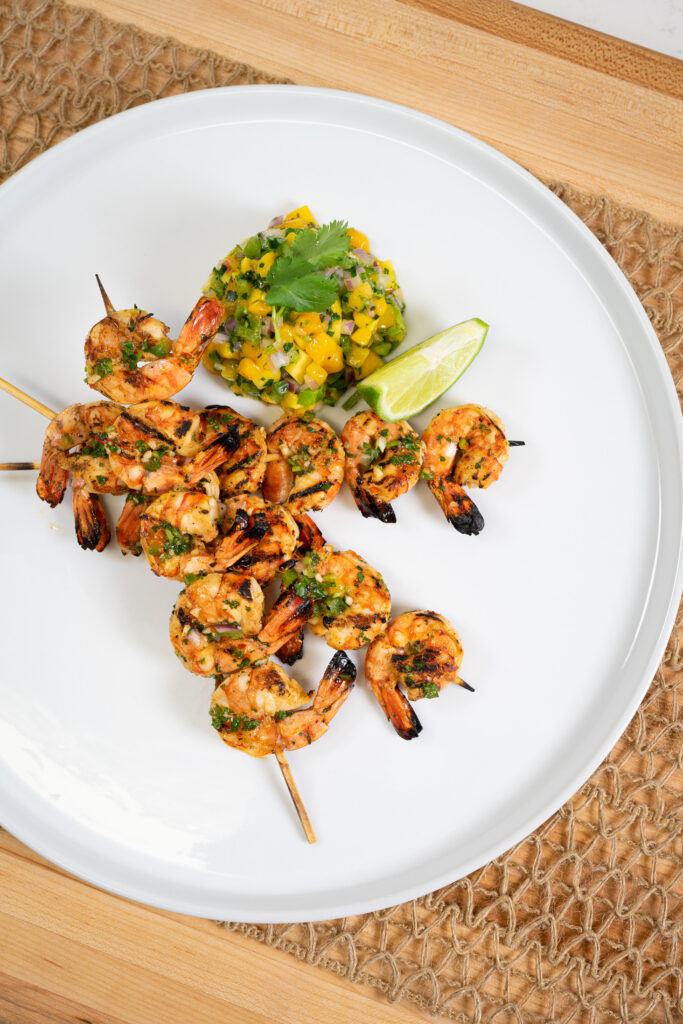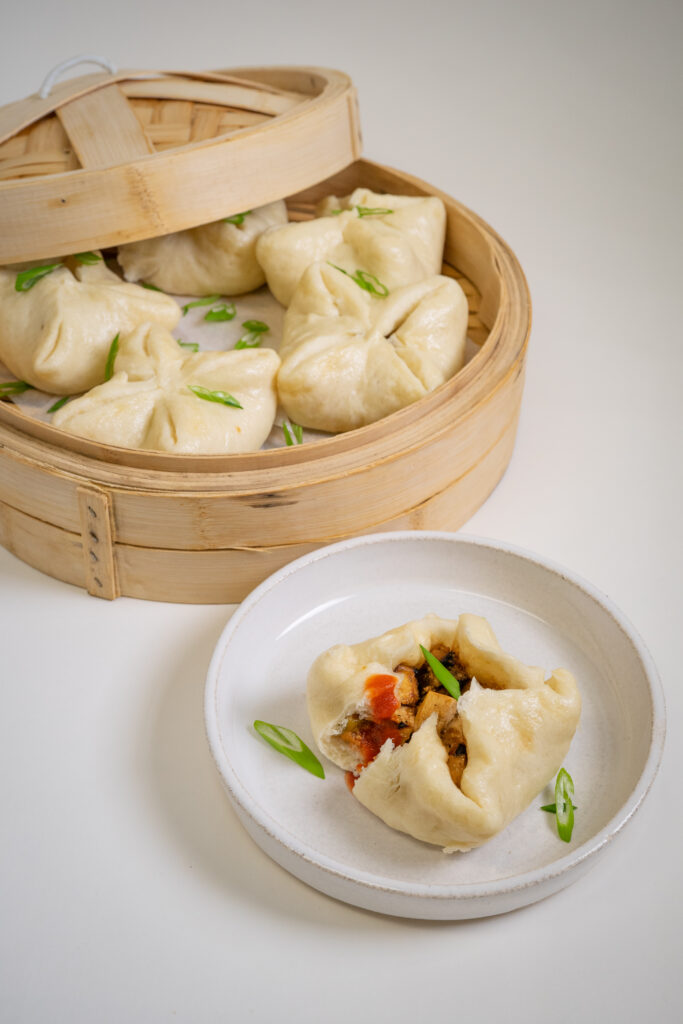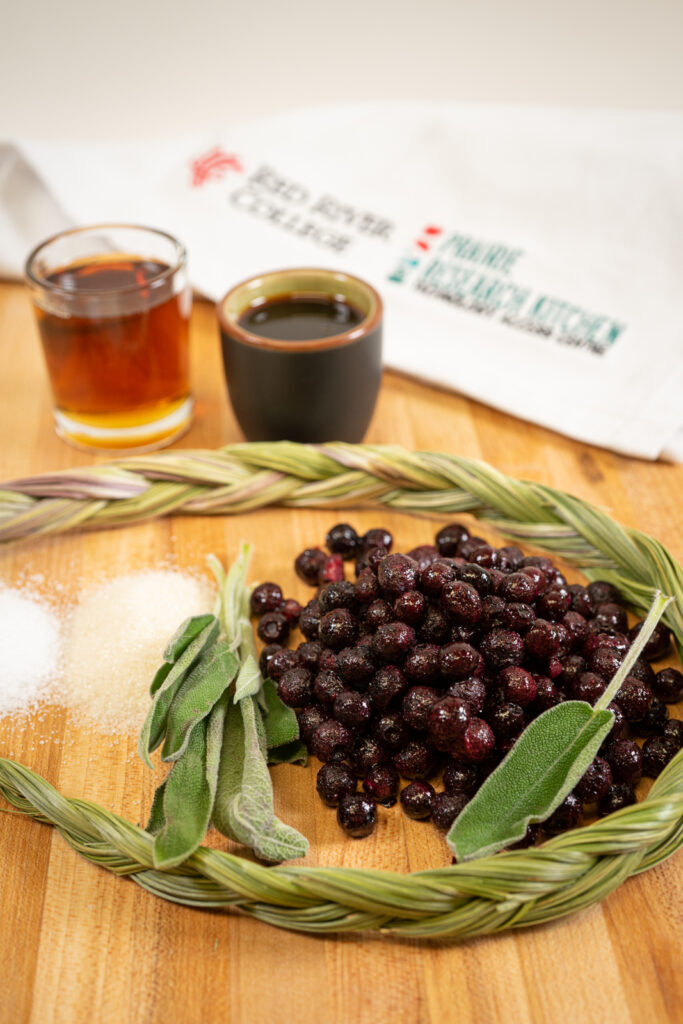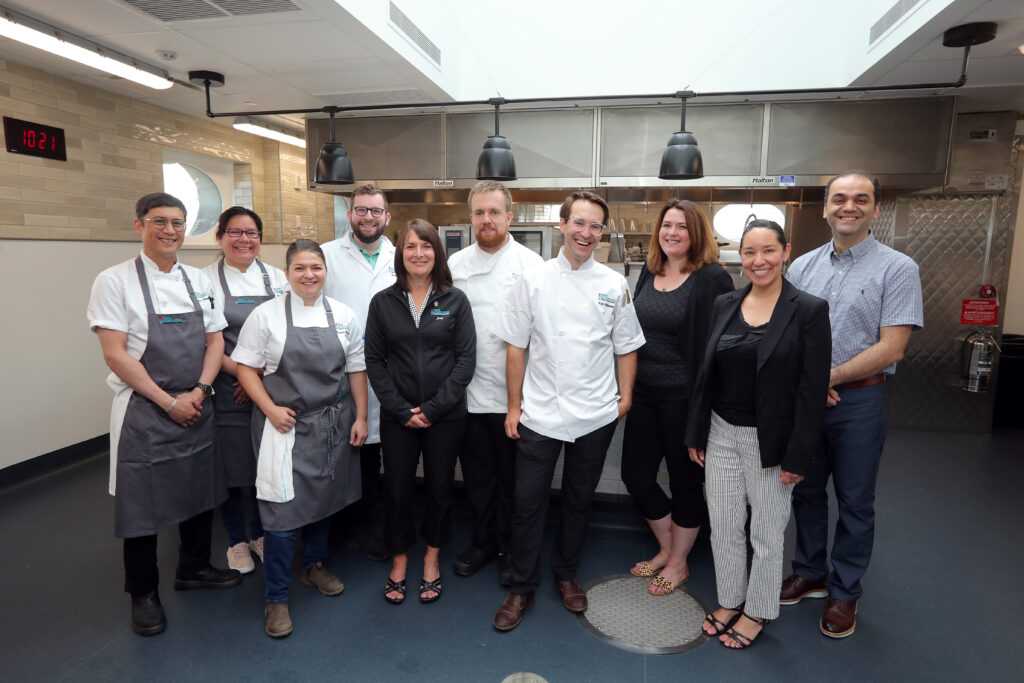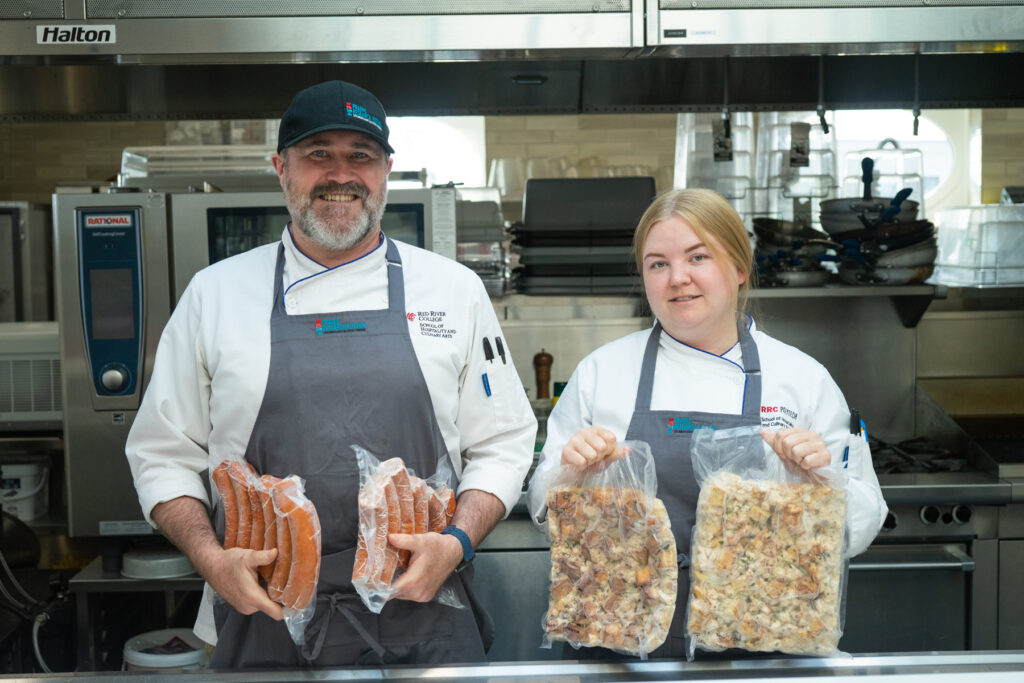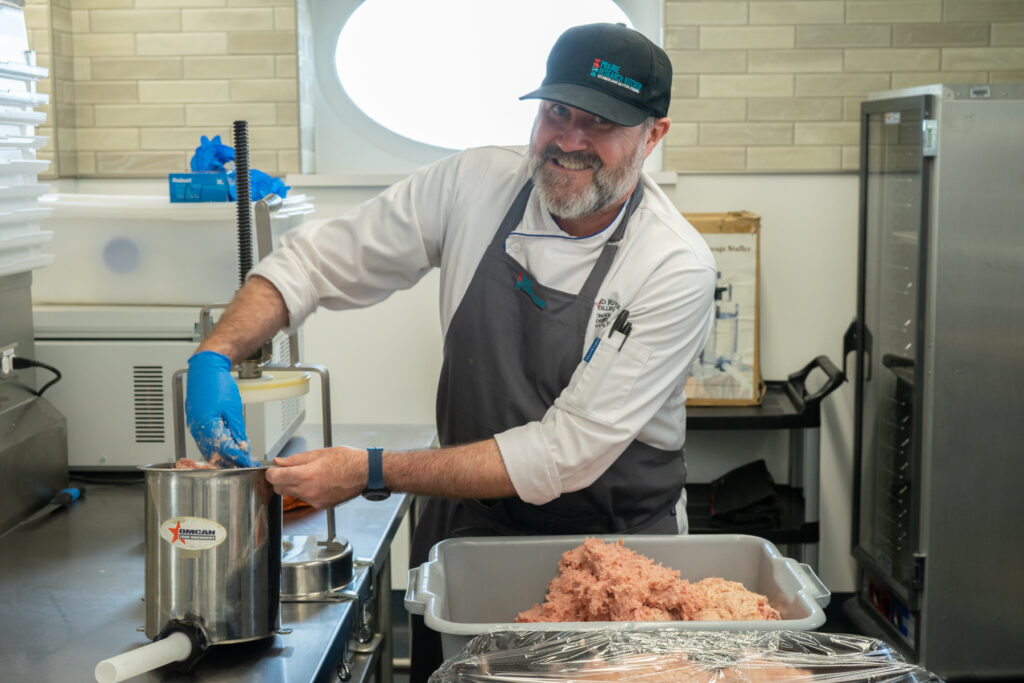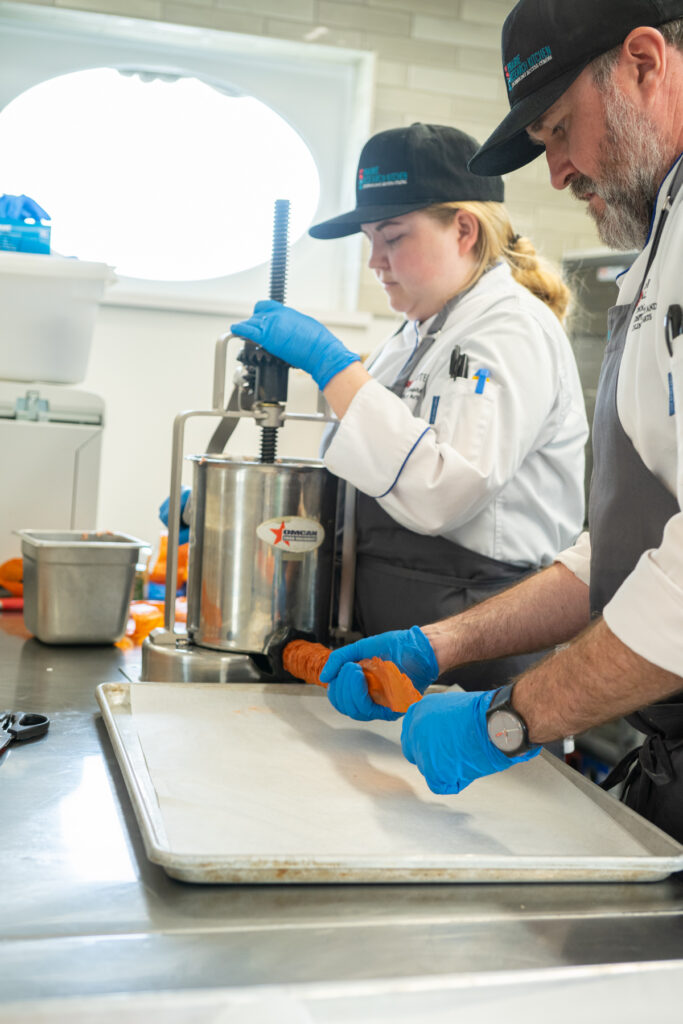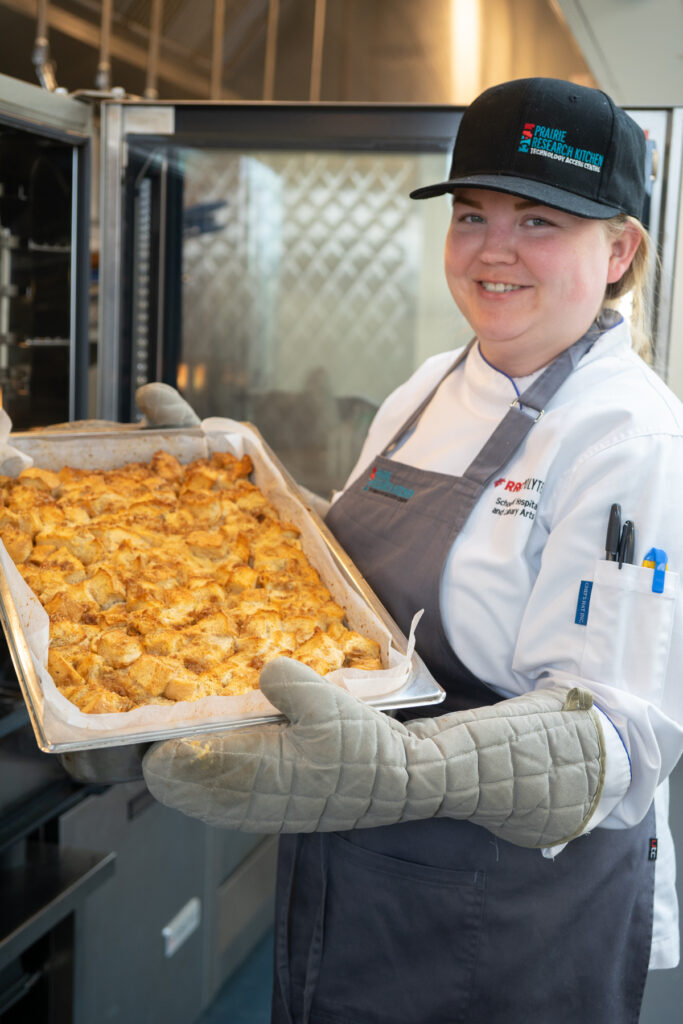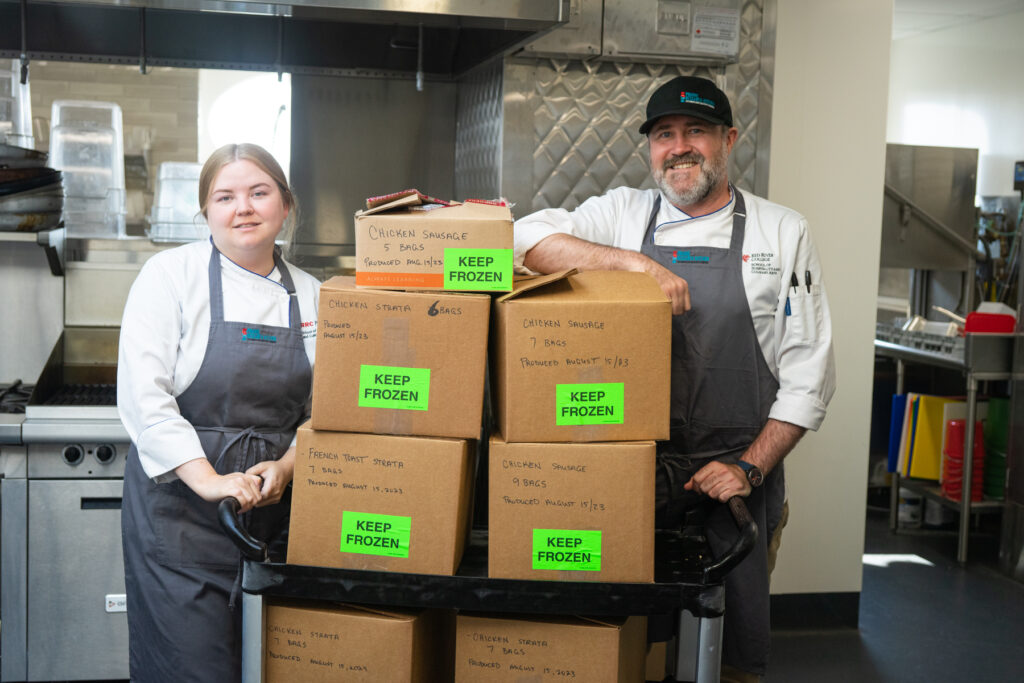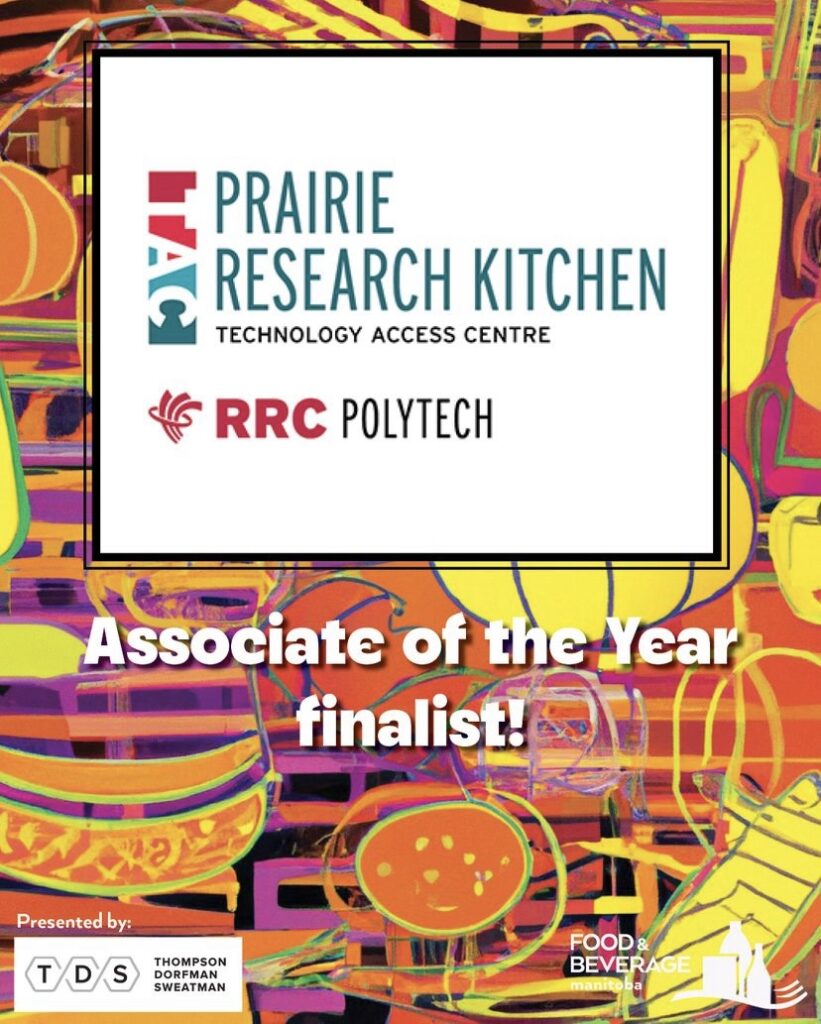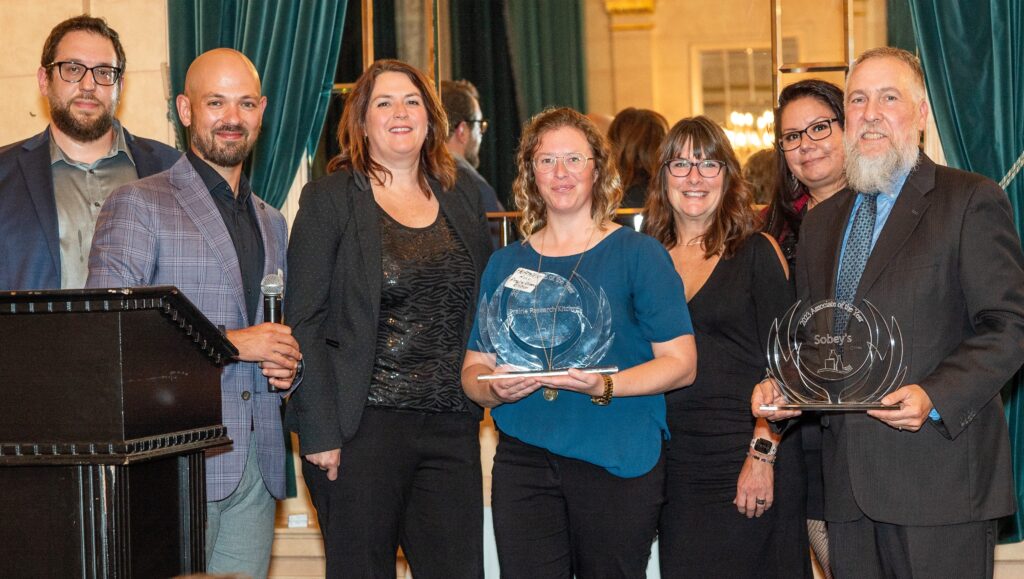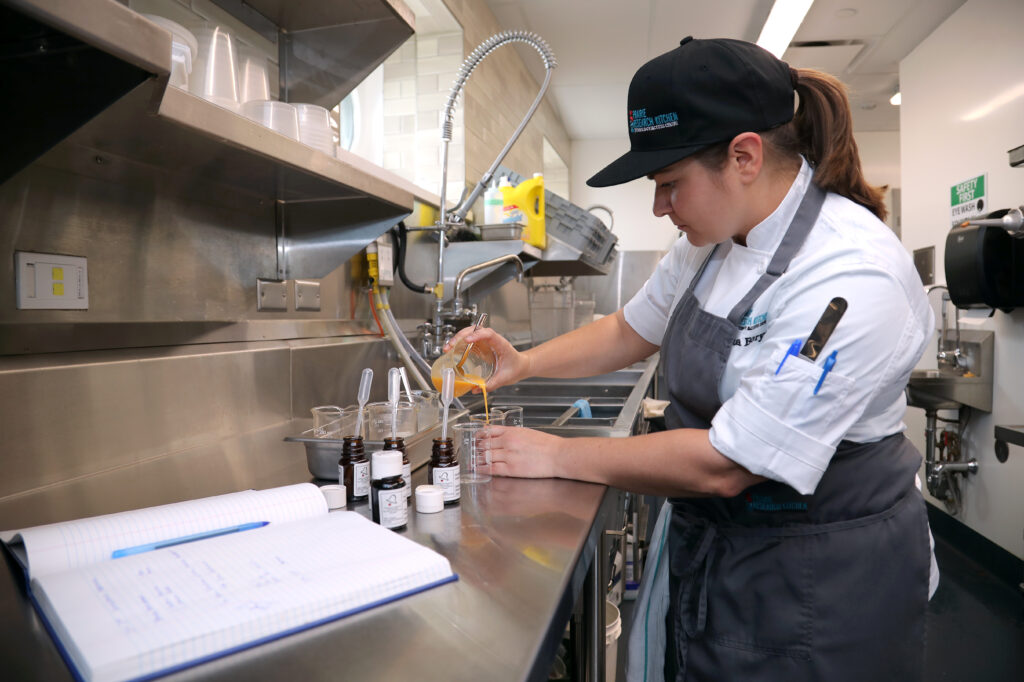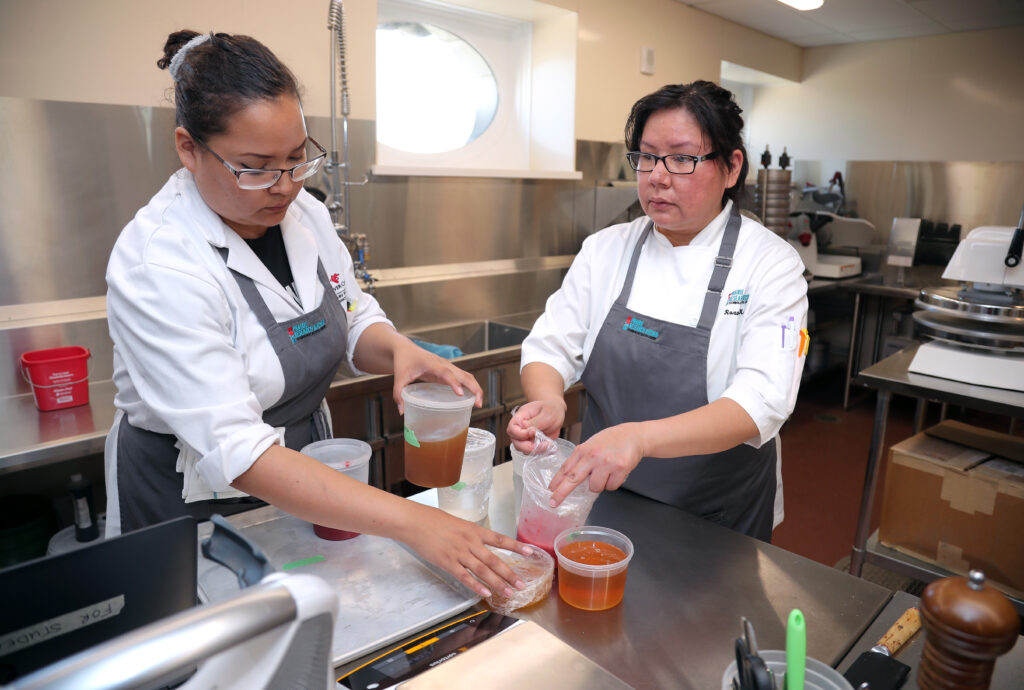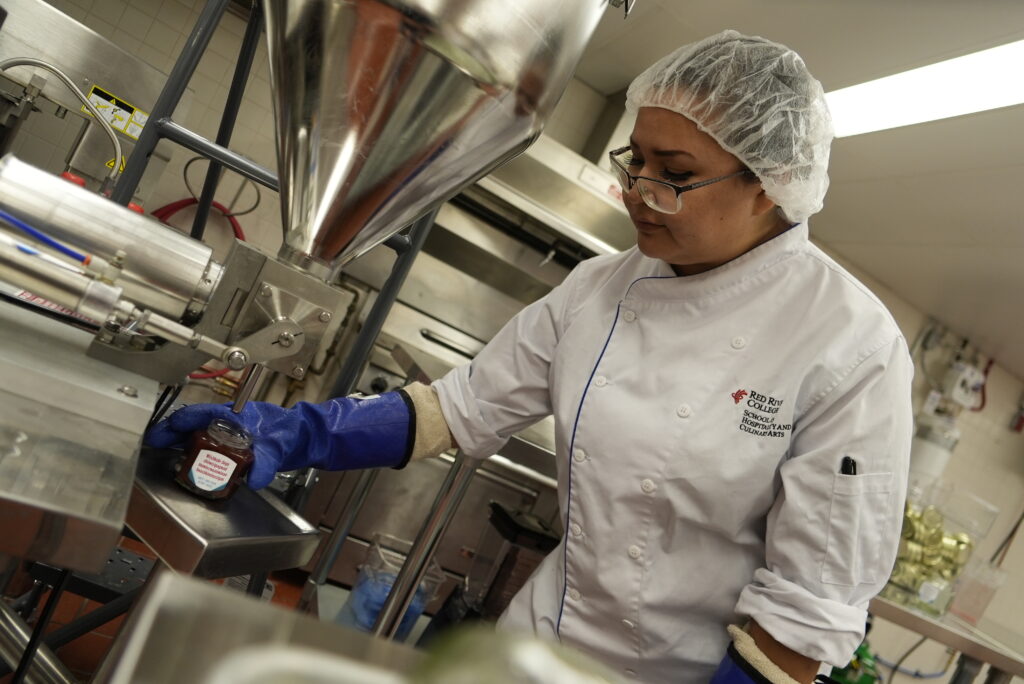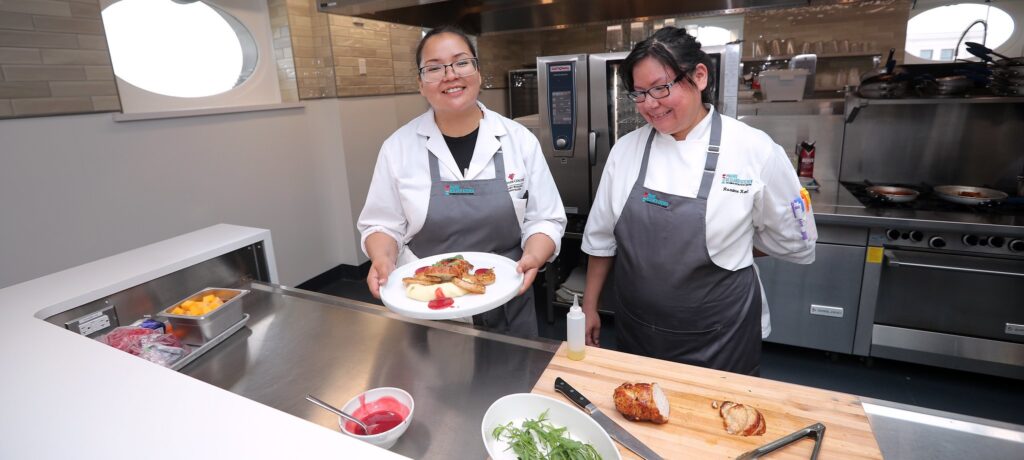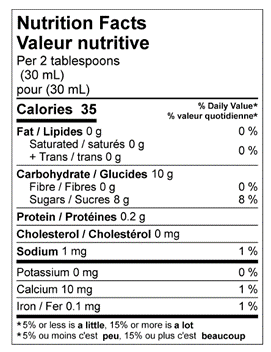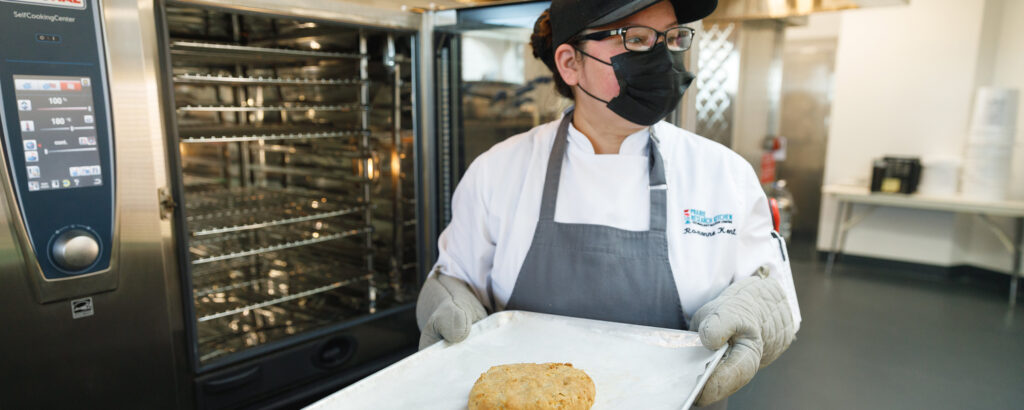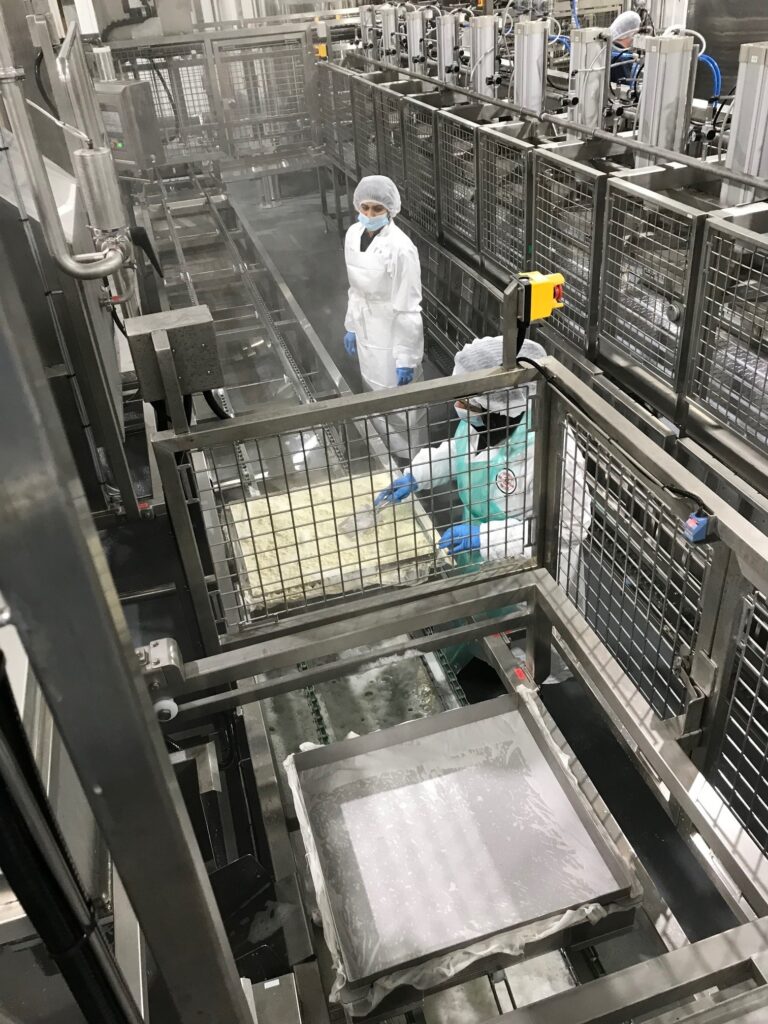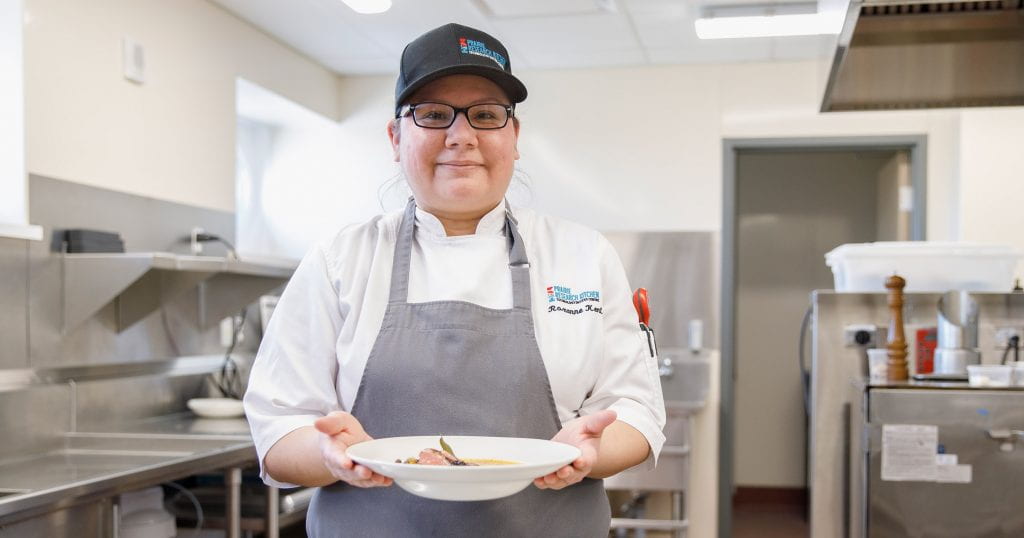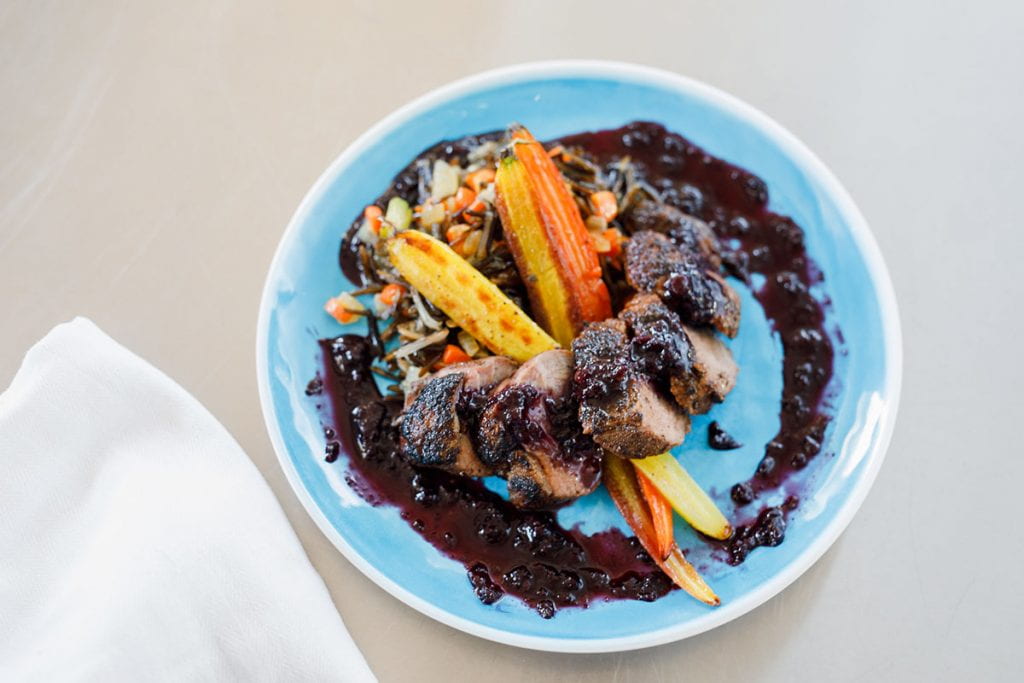Students develop their own personal recipes for success at RRC Polytech’s Prairie Research Kitchen
Innovative ideas and fresh new products are always on the menu at RRC Polytech’s Prairie Research Kitchen (PRK), Western Canada’s only Technology Access Centre that blends culinary arts and food science. But in addition to contributing to applied research projects for industry partners and clients, this summer’s co-op students at PRK also whipped up a little something special for themselves.
As part of their work-integrated learning experience, a trio of ambitious culinary students jumped at the challenge to create their own unique food product and take it from concept to market.
“It was a fun process that really tested everything we’ve learned and boosted my confidence,” said Culinary Arts student, Yesenia Portillo. “It’s a nice sendoff or grand finale to a chapter of my educational journey that I’ll never forget.”
Portillo named their sweet pepperoncini relish ‘Prairie Glow’ as a tribute to their positive experience working at PRK. They actually stumbled upon the key ingredient by accident but say the combination of its acidic brightness and sweet subtle heat made their tastebuds dance. They recommend their relish to other pickle-lovers as a perfect complement to charcuterie boards or pizza.
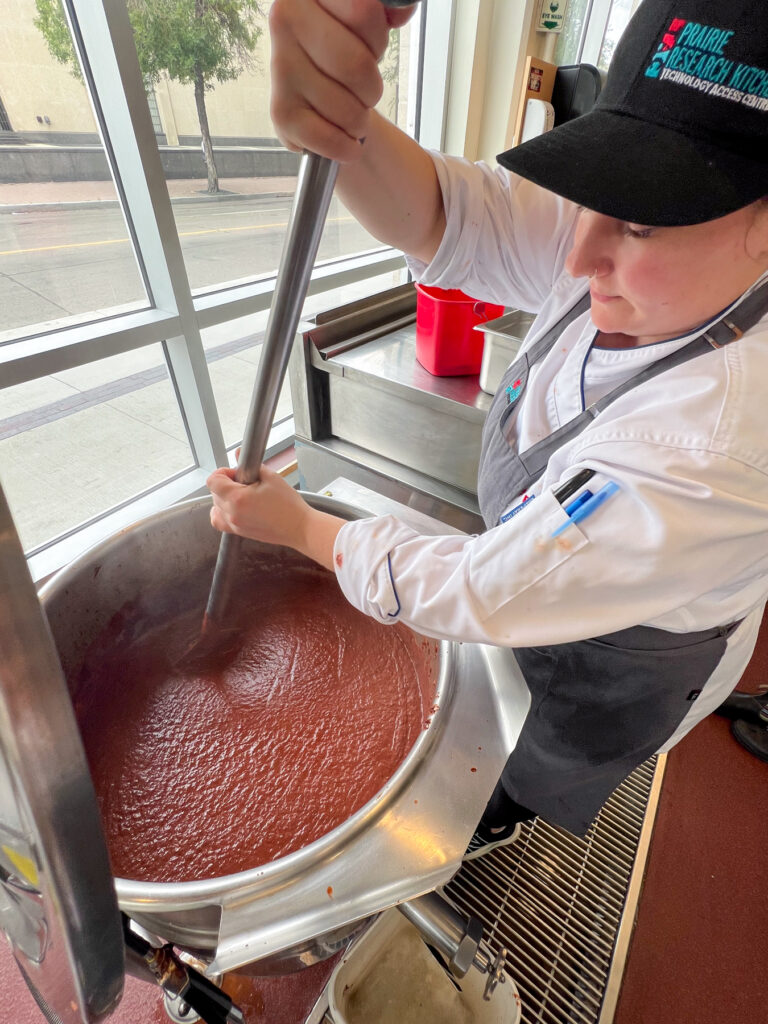
Originally from Winnipegosis and a member of Minegoziibe Anishinabe, Tia Fleming chose to highlight her Indigenous culture with a barbecue sauce that works well with the wild game commonly served in the area. She combined locally grown saskatoon berries with jalapeño and after consulting with community, Fleming harvested and torched her own sweetgrass then infused it into vinegar to add smoky flavour and a spiritual element.
Indigenous Language Instructor, Corey Whitford provided the Anishinaabemowin translation for the label of the sauce that lists the main ingredients. Gaa Gi-zhi-deg Mis-kwaa-ko-a-too-mi-na Wiin-gash-ki Baash-ki mi-na-si-gan will be gifted and not sold due to its medicinal properties.
“I wanted my product to demonstrate that food can be delicious, healing and tell a story all at the same time,” said Fleming, a student in RRC Polytech’s Indigenous Culinary Skills program. “I feel proud that I’m learning new skills that I can share with family and my community and eventually give back by teaching others. It would be awesome if this was the first in a line of sauces that someday I could bring to Pow Wows and ceremonies.”
Intrigued by food chemistry with a focus on sustainability, Hui-Yun Sim, a Professional Baking student experimented with using a red lentil component before settling on a high protein chickpea pulse flour as the base for an instant brownie mix. Showcased at EDC’s Culinary Exchange, her Chocolate Chickpea Pleasers Brownie Mix lived up to its name as stock didn’t last long.
“It’s so cool to see other students actually buying your product that’s made from weird or unfamiliar ingredients to them, and to know it tastes great,” said Sim. “PRK was an empowering place to work, I’m much stronger for it.”
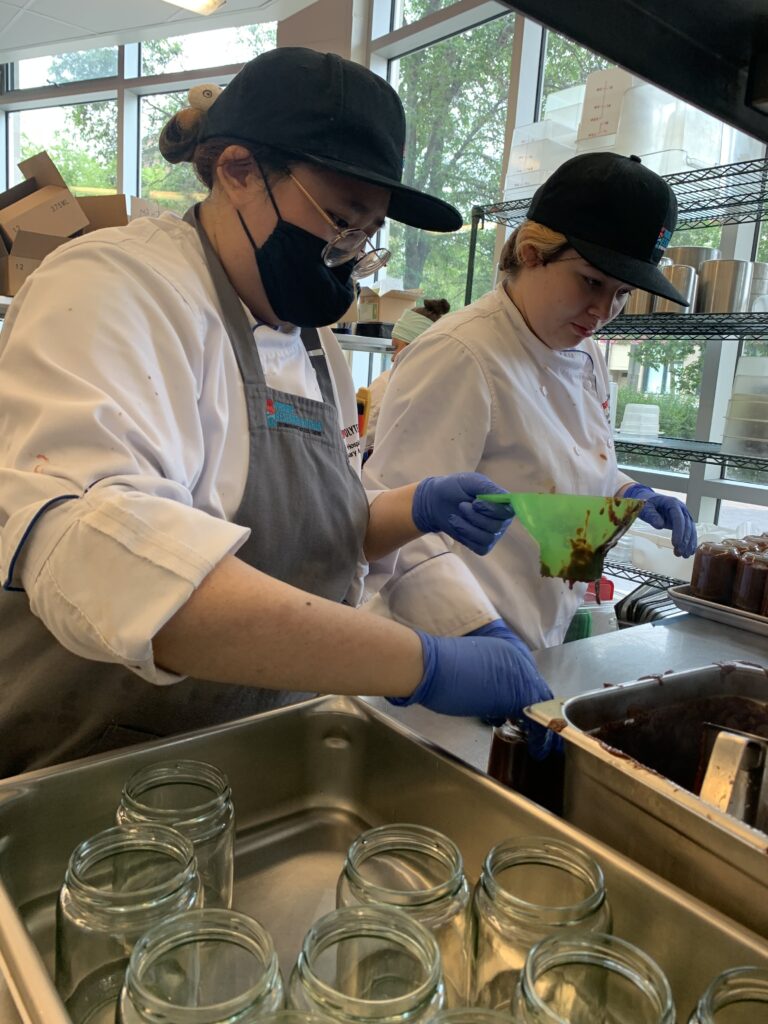
That’s because coming up with a clever or meaningful product idea was just the beginning. Determining the ingredients and recipe required more than just dozens of trials and taste tests – it took careful analysis of food costs and availability, allergens, nutritional values and scalability. They also needed working knowledge of procurement, health and safety measures, and marketing to navigate their ideas from potential to reality.
Despite the individual nature of the assignment, collaboration is a foundational objective at PRK, so the students worked together to perfect their creations and were supported by the professional research staff and even partners as Bee-Maid generously donated honey for the students to use.
“This is the first time we’ve attempted three separate student-led creations in one summer, but they each had their own vision and were very determined to showcase their culinary and critical thinking skills by seeing it through,” said Anna Borys, Research Technician at Prairie Research Kitchen.
“They ultimately came up with really tasty and thoughtful products while gaining a much better understanding of the amount of work it takes to put a single food item on a grocery store shelf.”
While their backgrounds, approaches, dreams and products are vastly different, all three of PRK’s most recent co-op students are moving forward in their careers with the same thought – it’s a healthy serving of thinking, learning, adapting, and planning that leads to culinary excellence and innovation.
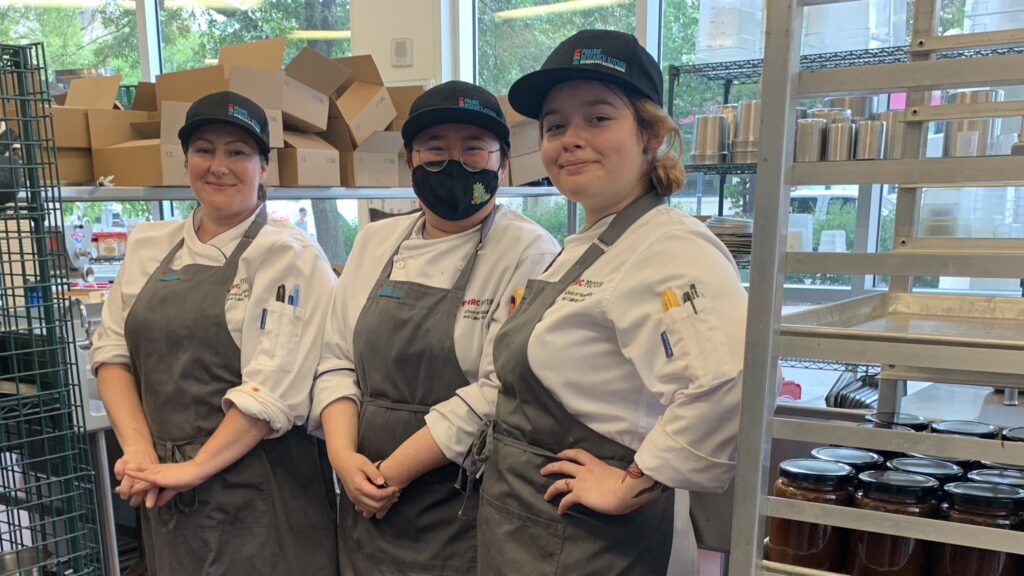
“Our team at PRK approaches our work with an entrepreneurial mindset. We encourage each member, including our co-op students, to expand their creative boundaries to best support our clients, each other and their own personal development,” said Mavis McRae, Director, Prairie Research Kitchen.
“Incorporating concepts like cultural significance, practicality and sustainability into great tasting food demonstrates the ability of these students to blend their expertise with their passions – something I’m proud to say our team does every day and that will serve them well in all of their future endeavours.”
